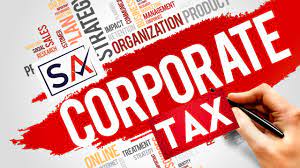Corporate taxation is a critical aspect of financial management for businesses of all sizes. Understanding the intricacies of corporate tax laws, regulations, and compliance requirements is essential for professionals aiming to excel in the fields of accounting, finance, and business management. This comprehensive guide will delve into the essentials of corporate taxation, offering valuable insights and practical advice for professionals. Moreover, it will highlight the importance of continuous learning and professional development through specialized courses, such as those offered by Al Mithaq Institute, to stay ahead in this complex and ever-evolving field.
Table of Contents
- Introduction to Corporate Taxation
- Importance of Corporate Taxation
- Key Components of Corporate Taxation
- Corporate Tax Compliance
- International Corporate Taxation
- Tax Planning and Strategy
- Recent Developments in Corporate Taxation
- The Role of Technology in Corporate Taxation
- Professional Development in Corporate Taxation
- Conclusion
1. Introduction to Corporate Taxation
Corporate taxation refers to the taxes imposed on the profits of corporations. These taxes are levied by federal, state, and local governments and are a significant source of revenue. The complexity of corporate tax laws necessitates a deep understanding of the subject to ensure compliance and optimize tax liabilities.
2. Importance of Corporate Taxation
Corporate taxation plays a pivotal role in the economic framework of any country. It funds public services, infrastructure, and social programs. For businesses, understanding corporate taxation is crucial for financial planning, compliance, and strategic decision-making.
3. Key Components of Corporate Taxation
Taxable Income
Taxable income is the base upon which corporate taxes are calculated. It includes revenues minus allowable deductions such as cost of goods sold (COGS), operating expenses, and depreciation.
Tax Rates
Corporate tax rates vary by jurisdiction. Understanding the applicable rates and how they impact the overall tax liability is essential for accurate financial planning.
Deductions and Credits
Deductions reduce taxable income, while credits directly reduce the tax liability. Common deductions include business expenses, interest on debt, and charitable contributions. Credits may be available for research and development, renewable energy investments, and more.
Depreciation and Amortization
Depreciation and amortization allow businesses to spread the cost of tangible and intangible assets over their useful lives, reducing taxable income.
4. Corporate Tax Compliance
Filing Requirements
Corporations must file tax returns annually, detailing income, deductions, and credits. Timely and accurate filing is crucial to avoid penalties.
Record-Keeping
Maintaining detailed and organized records is essential for compliance and audit readiness. This includes financial statements, receipts, and documentation of deductions and credits.
Audits and Penalties
Tax authorities may audit corporate tax returns to ensure compliance. Non-compliance can result in penalties, interest, and legal consequences.
5. International Corporate Taxation
Transfer Pricing
Transfer pricing involves setting prices for transactions between related entities in different jurisdictions. Proper transfer pricing is crucial to avoid tax disputes and penalties.
Double Taxation Treaties
These treaties prevent income from being taxed twice in different jurisdictions, promoting international trade and investment.
Tax Havens and Offshore Accounts
Some corporations use tax havens and offshore accounts to minimize tax liabilities. However, this practice is under increasing scrutiny and regulation.
6. Tax Planning and Strategy
Tax-Efficient Structures
Choosing the right business structure (e.g., corporation, partnership, LLC) can significantly impact tax liabilities.
Mergers and Acquisitions
Tax considerations are critical in M&A transactions, influencing deal structure and valuation.
Tax Incentives and Reliefs
Governments offer various incentives and reliefs to encourage specific business activities, such as R&D and green energy investments.
7. Recent Developments in Corporate Taxation
Digital Economy Taxation
The digital economy poses unique challenges for corporate taxation, leading to new regulations and tax frameworks.
BEPS (Base Erosion and Profit Shifting)
BEPS refers to strategies used by multinational corporations to shift profits to low-tax jurisdictions. International efforts are underway to combat BEPS.
Global Minimum Tax
Proposals for a global minimum tax aim to create a level playing field and reduce tax competition among countries.
8. The Role of Technology in Corporate Taxation
Automation and AI
Automation and AI are transforming corporate taxation, improving accuracy, efficiency, and compliance.
Blockchain and Cryptocurrency
Blockchain technology and cryptocurrencies are creating new challenges and opportunities in corporate taxation.
Data Analytics
Data analytics enables more informed decision-making and strategic tax planning.
9. Professional Development in Corporate Taxation
Importance of Continuous Learning
The field of corporate taxation is constantly evolving. Continuous learning is essential to stay updated with the latest laws, regulations, and best practices.
Specialized Courses and Certifications
Specialized courses and certifications provide in-depth knowledge and practical skills, enhancing career prospects and professional competence.
Al Mithaq Institute’s Offerings
Al Mithaq Institute offers a range of specialized diplomas and training programs in corporate taxation and related fields. Their courses are designed to equip professionals with the knowledge and skills needed to excel in corporate taxation. With a focus on both online and in-person learning, Al Mithaq Institute ensures flexibility and accessibility for all students.
Why Choose Al Mithaq Institute?
- Accreditation: Certificates from Al Mithaq Institute are recognized locally and internationally, adding value to your professional credentials.
- Expert Faculty: Learn from experienced professionals with over a decade of industry experience.
- Comprehensive Curriculum: Courses cover all aspects of corporate taxation, from basic principles to advanced strategies.
- Flexible Learning Options: Choose from online or in-person courses to fit your schedule and learning preferences.
- Personalized Support: Benefit from high-quality resources and dedicated support to ensure your success.
10. Conclusion
Corporate taxation is a complex and dynamic field that requires a deep understanding of laws, regulations, and best practices. For professionals aiming to excel in this area, continuous learning and professional development are essential. Al Mithaq Institute offers specialized courses and training programs that provide the knowledge and skills needed to navigate the complexities of corporate taxation. By investing in your education and staying updated with the latest developments, you can enhance your career prospects and contribute to the success of your organization.
Ready to Advance Your Career in Corporate Taxation?
Enroll in one of Al Mithaq Institute’s specialized courses today and gain the expertise you need to succeed. Visit our courses page to explore our offerings and start your journey towards professional excellence.
Contact Us






